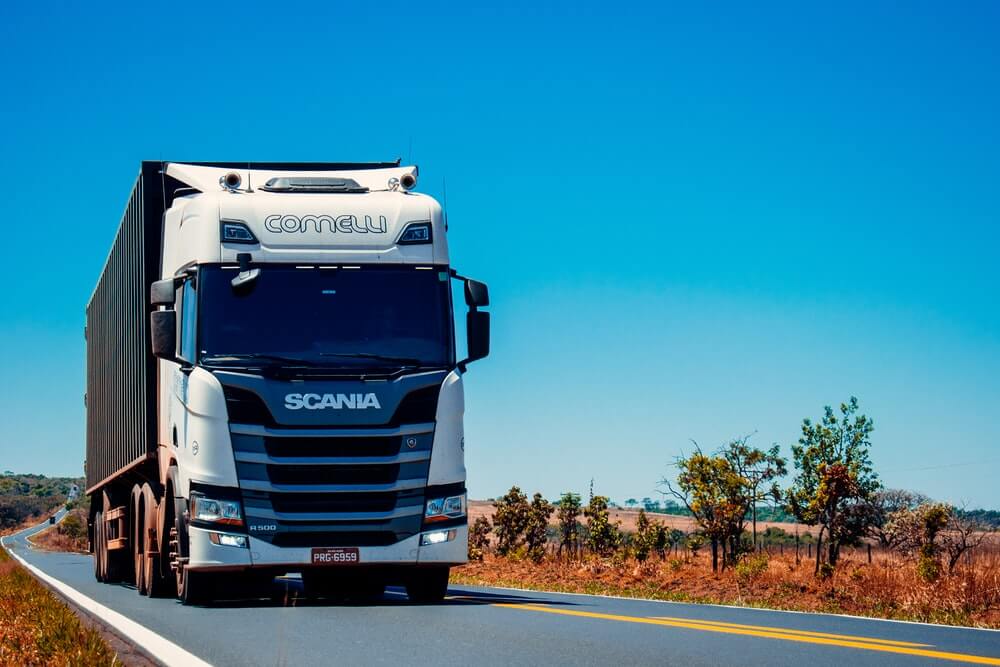
Truck
The trucking industry as a whole tends to run on pretty tight margins, so if you’re planning on starting your own company, it would make sense to pick the most profitable type of trucking business. The question is, which type would that be? There are countless kinds of goods that have to be transported; some over long-haul trips, others via local routes. They may have to be refrigerated, or maybe they can be stacked on top of a flatbed. The type of trucking business you start won’t just affect your profits; it’ll also determine the type of trucks you use, which regulations apply to you, which certifications your truck drivers have to get, and all kinds of other details.
For now, though, the main decision is choosing the right trucking business for the highest profits. These are the top five choices, plus a few tips for anyone who’s starting their own trucking company for the first time.
#1: Luxury car hauling
This is quite a niche trucking industry, but it commands high prices compared to many other trucking companies. Luxury cars may vary in cost from one to the next, but they’re never cheap – and neither is the cost of transporting them. The main difference is found in the level of care and service that the trucking company offers. These aren’t ordinary cars, and extra effort has to be made to ensure that they’re delivered in pristine condition. The drivers won’t have to obtain special certifications, but they will need a superior track record and up-to-date safety training.
#2: Hazmat hauling
Transporting hazardous materials also takes a lot of care and attention, but for a different reason than with luxury cars. A mistake that’s made while delivering a luxury car could result in an insurance claim and increased insurance fees; a mistake that’s made while transporting hazardous materials could cause environmental pollution, injuries, and even fatalities, depending on what’s being transported. This could include corrosive substances, explosive gases, flammable liquids, and more. Hazmat hauling requires special trucks that can safely contain these substances, as well as specific driver certifications and safety training. The risk factors drive up the price of transportation, which is what boosts the profits. It may be more dangerous than some trucking jobs, but it’s more profitable and in high demand.
#3: Tanker hauling
These types of trucks can be used for either non-hazardous or hazardous liquids, from milk to corrosive acids. Regardless of the nature of the load, tanker drivers need to get additional certifications, as well as extra safety training. Because there are more risks and requirements for tanker hauling, the profit margins tend to be on the higher end.
#4: Oversized load hauling
Here’s another specialty type of trucking company, which requires more than just a few 18-wheelers and a loading/unloading facility. Oversized loads can be just about anything that won’t fit on a regular trucking rig, from small houses to wind turbine parts. They can also have an irregular size or weight distribution, making it even more risky to transport across any distance. Because of the complicated nature of each load, trucking companies can charge more for oversized load hauling.
#5: Mining industry trucking
Although this does involve the transportation of mined materials to processing plants, there’s more to the job than that. It also requires materials like coal and ore to be transported out of the mines themselves, which is especially risky. Drivers have to follow specific safety protocols to avoid triggering tunnel collapses, which is always a risk no matter how careful you are. Because of the elevated risk levels, this type of trucking business commands higher prices than average.
Which types of trucks are most commonly used?
When most people think about the trucking industry, they think of semi-trucks or flatbeds. However, there are several different kinds of trucks that used in this industry; these are the most common.
Dry van trailers
Also called semi-trucks or 18-wheelers, these are by far the most common trucks that are used for long-haul transportation. They’re typically used for large equipment, or items that can be transported on pallets or in boxes.
Flatbed trucks
Flatbeds can be loaded from just about any direction, which makes them a favorite with trucking companies. There’s also more flexibility with regards to the load’s dimensions. Rather than having to fit within the walls of a trailer, larger loads can fit onto a flatbed without any issues.
Refrigerator trucks
Refrigerator (or freezer) trucks are used to transport dairy products, produce, meat, or other food items that must be kept below certain temperatures. They’re essentially mobile refrigerators, complete with insulation, temperature control, and more.
Tanker trucks
These trucks are used to haul liquids, such as fuel, milk, molasses, and much more.
Tips for first-time trucking business owners
If you’re working on getting your trucking business off the ground, here are some important things to consider.
Get an attorney on board
The trucking industry is highly regulated, and violations tend to be prosecuted swiftly. A safety and compliance attorney will keep your business on the right side of the law, and help you avoid costly fines and other legal consequences.
Make a detailed business plan
Just like with starting any other business, it’s key to know exactly what needs to happen before it happens. Make sure you know the projected costs and profits before you start, study the market, and learn about other relevant details.
Keep cash in reserve
Many new trucking companies start out with the help of loans or investors; others use the owner’s capital. Whatever the case, the venture shouldn’t be started without at least two or three months’ worth of operating expenses in the bank. This is a vital safety net for the new business, and could make all the difference if a sudden expense comes up.
The takeaway
Your new trucking business will likely operate with tight margins, but if you choose the right niche within the industry, you’ll be able to enjoy bigger profits from the beginning.






